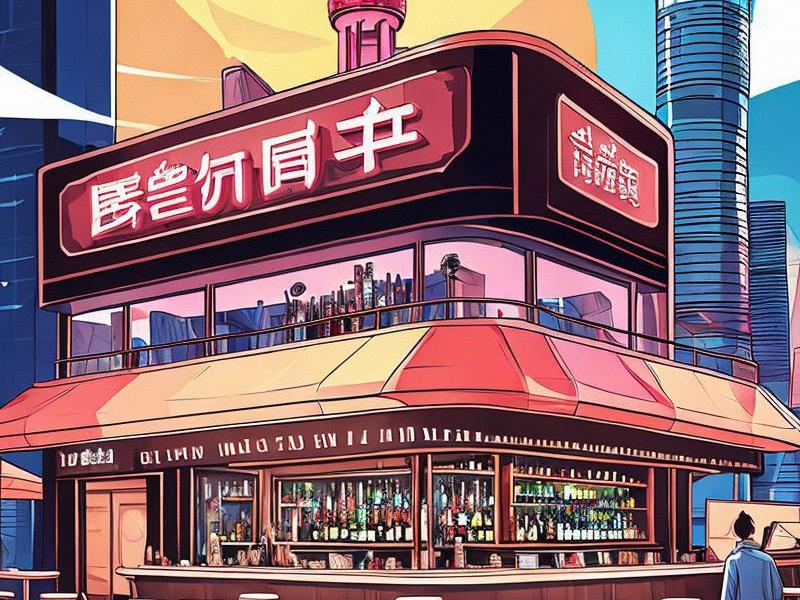This article delves into the vibrant world of Shanghai's entertainment clubs, exploring their unique blend of glamour, cultural significance, and the evolving regulatory landscape that governs them. As the city continues to grow and modernize, these establishments play a crucial role in shaping Shanghai's nightlife scene.

Shanghai, known as the "Paris of the East," has long been a hub for culture, commerce, and entertainment. Among its many attractions, the city's entertainment clubs stand out as a testament to its dynamic and cosmopolitan spirit. These clubs, ranging from high-end nightclubs to intimate jazz bars, offer a diverse array of experiences that cater to a wide audience.
The history of Shanghai's entertainment clubs dates back to the early 20th century, during the city's heyday as a global metropolis. The French Concession, in particular, became synonymous with opulence and nightlife, hosting numerous cabarets, dance halls, and speakeasies. These establishments not only provided entertainment but also served as social hubs where people from different walks of life mingled.
In recent decades, Shanghai's entertainment scene has undergone significant transformation. The rise of the middle class and increasing tourism have fueled demand for sophisticated nightlife options. Modern entertainment clubs now feature state-of-the-art sound systems, dazzling lighting, and world-class DJs, attracting both locals and international visitors. These venues often host themed events, live music performances, and art exhibitions, creating a vibrant cultural atmosphere.
One of the most iconic entertainment clubs in Shanghai is the M1NT Club, located in the prestigious Jin Mao Tower. Known for its exclusive membership policy and cutting-edge design, M1NT offers a unique blend of luxury and entertainment. The club features panoramic views of the city skyline, a rooftop bar, and a restaurant serving gourmet cuisine. Its reputation as a premier destination for the city's elite has made it a staple on the Shanghai nightlife circuit.
爱上海同城419 Another notable establishment is the Bar Rouge, situated on the 66th floor of the Park Hyatt Hotel. This upscale bar offers breathtaking views of the Bund and the Huangpu River, making it a popular spot for both socializing and unwinding after a long day. The bar's signature cocktails and live music performances add to its appeal, attracting a mix of locals and tourists.
However, the rapid growth of Shanghai's entertainment clubs has also brought challenges, particularly in terms of regulation and oversight. The city government has implemented various measures to ensure that these establishments operate within the bounds of the law and maintain a safe environment for patrons. These regulations cover a range of issues, including licensing, alcohol sales, noise control, and safety standards.
One of the key regulatory bodies responsible for overseeing Shanghai's entertainment clubs is the Shanghai Culture and Tourism Bureau. This agency works closely with other departments, such as the Public Security Bureau and the Health Bureau, to enforce compliance with local laws and regulations. Regular inspections and audits are conducted to ensure that clubs meet the required standards.
In recent years, the government has also taken steps to address concerns related to nightlife safety and public order. For instance, certain areas of the city have been designated as "entertainment zones," where clubs and bars are concentrated. This approach allows for more effective management and monitoring of the nightlife scene, reducing the likelihood of incidents such as overcrowding and fights.
上海品茶网
Despite these regulatory measures, some clubs have faced challenges in adapting to the changing landscape. The COVID-19 pandemic, for example, had a significant impact on the entertainment industry, forcing many clubs to close temporarily or operate at reduced capacity. The pandemic highlighted the need for resilience and innovation in the face of adversity, prompting some establishments to explore new business models, such as hosting virtual events and offering outdoor seating.
The cultural significance of Shanghai's entertainment clubs extends beyond their role as venues for nightlife. These establishments often serve as platforms for artistic expression and cultural exchange. Many clubs host live music performances by both local and international artists, showcasing a diverse range of musical genres. Jazz, in particular, has a strong presence in Shanghai's nightlife scene, with numerous jazz bars and clubs offering intimate settings for live performances.
In addition to music, Shanghai's entertainment clubs also play a role in promoting other forms of art and culture. Some venues host art exhibitions, film screenings, and literary events, creating a multidisciplinary cultural experience. These initiatives not only enrich the nightlife scene but also contribute to the city's broader cultural identity.
上海花千坊龙凤 The evolving regulatory landscape and the cultural significance of entertainment clubs highlight the importance of finding a balance between preserving the city's vibrant nightlife and ensuring public safety and order. As Shanghai continues to grow and modernize, its entertainment clubs will remain a vital part of the city's urban culture, reflecting its dynamic spirit and cosmopolitan character.
Looking ahead, the future of Shanghai's entertainment clubs will likely be shaped by ongoing advancements in technology and changing consumer preferences. Virtual reality and augmented reality, for instance, have the potential to revolutionize the way people experience nightlife, offering immersive and interactive environments. Additionally, the rise of health-conscious consumers may lead to an increase in fitness-focused nightlife options, such as dance studios and wellness bars.
In conclusion, Shanghai's entertainment clubs are a vibrant and integral part of the city's nightlife scene, offering a unique blend of glamour, culture, and entertainment. While the industry faces challenges related to regulation and oversight, these establishments continue to adapt and innovate, ensuring their relevance in an ever-changing urban landscape. As Shanghai's nightlife evolves, its entertainment clubs will undoubtedly remain a cornerstone of the city's cultural identity, attracting visitors from around the world and contributing to its status as a global hub of culture and commerce.